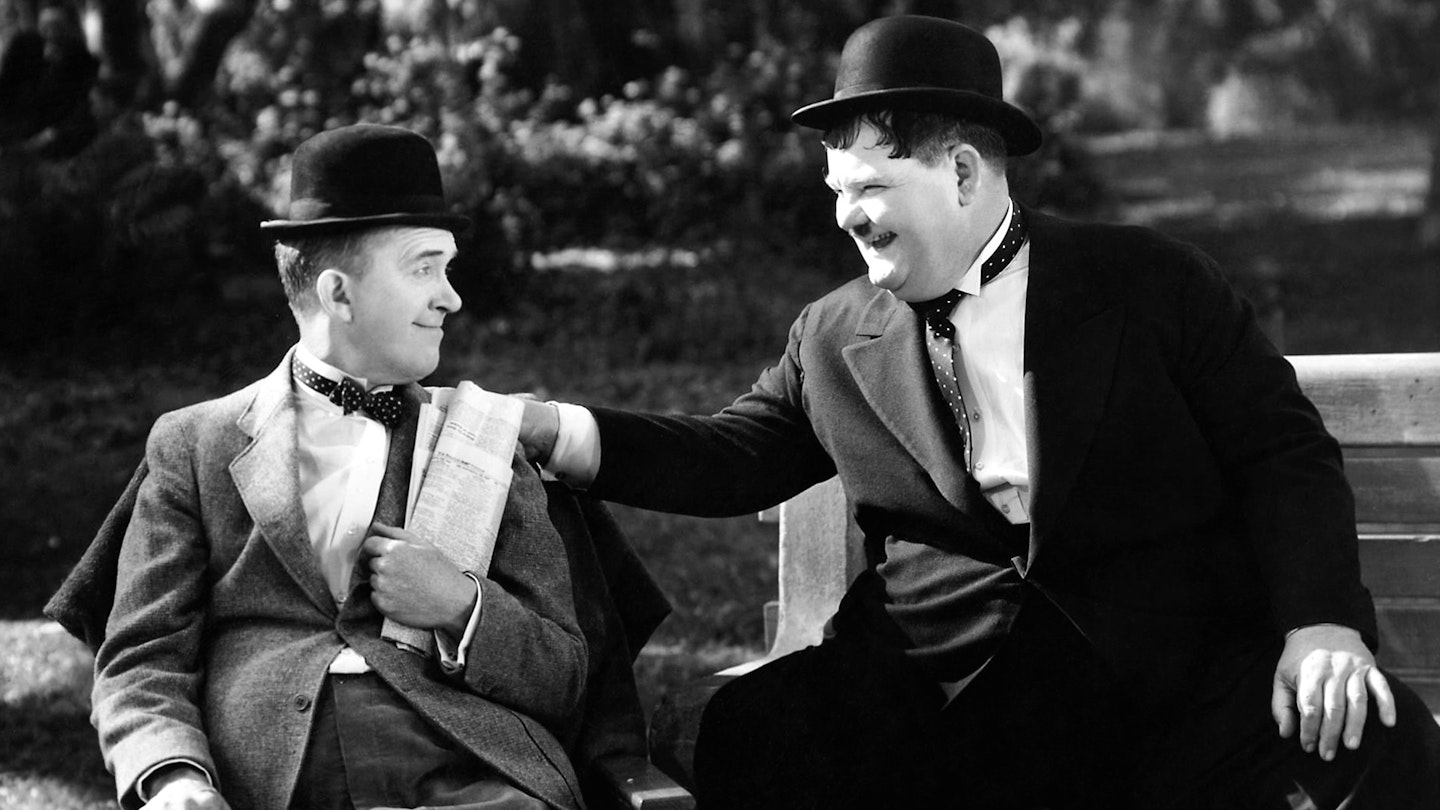Frustrated by the narrative variability of Pardon Us and Pack Up Your Troubles, Stan Laurel was determined to eschew slapstick set-pieces in order to produce a feature in which the humour was not only derived from situation and character, but which was also fully integrated into the storyline. Consequently, he hired new writing partners for this variation on the 1928 silent two-reeler, We Faw Down, which had supposedly been inspired by a piece of gossip that Oliver Hardy had heard from his laundress.
Frank Craven wrote the treatment while the duo was completing Busy Bodies and Stan then worked with Frank Terry on the dialogue and ex-comic Glenn Tryon on additional material, while Byron Morgan was polishing the continuity. But even more significant than the meticulous plotting was the contribution of director William A. Seiter, whose background lay in drama and light romance rather than clowning, and his sure sense of pace and flow ensured the kind of seamless scenario that Stan had envisaged.
Indeed, this is one of Laurel and Hardy's tightest pictures and it's hard to argue against the exclusion of sequences in which the pair first cause chaos during the parade by bicycling into a banner and then wind up in the hoosegow after a drunken fracas. Even the songs are all of the piece, with the Sons' anthem riffing on such standards as Give My Regards to Broadway and Yankee Doodle Dandy, while `Honolulu Baby' suggested that the picture was a parody of Convention City, especially as Ty Purvis (who had once been Betty Grable's dance partner) turned in such a mischievous impersonation of its crooner star, Dick Powell.
As ever, Mae Busch steals scene as Ollie's firebrand wife and Dorothy Fields provides solid support in a role that she only landed four days into shooting when Patsy Kelly was held up on Bing Crosby's Going Hollywood. But not everybody enjoyed the experience, as Charley Chase resented having to play against genial type as Ollie's obnoxious brother-in-law, while Variety continued its vendetta against Laurel and Hardy by posting a negative review.

